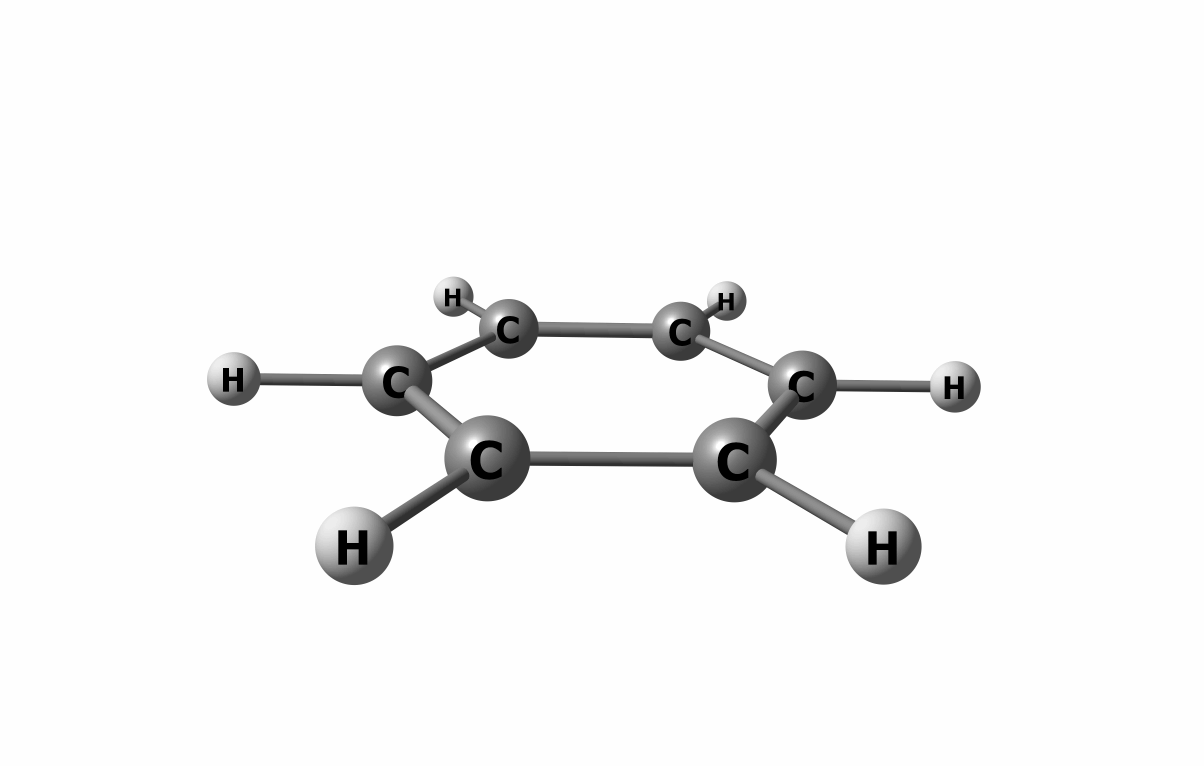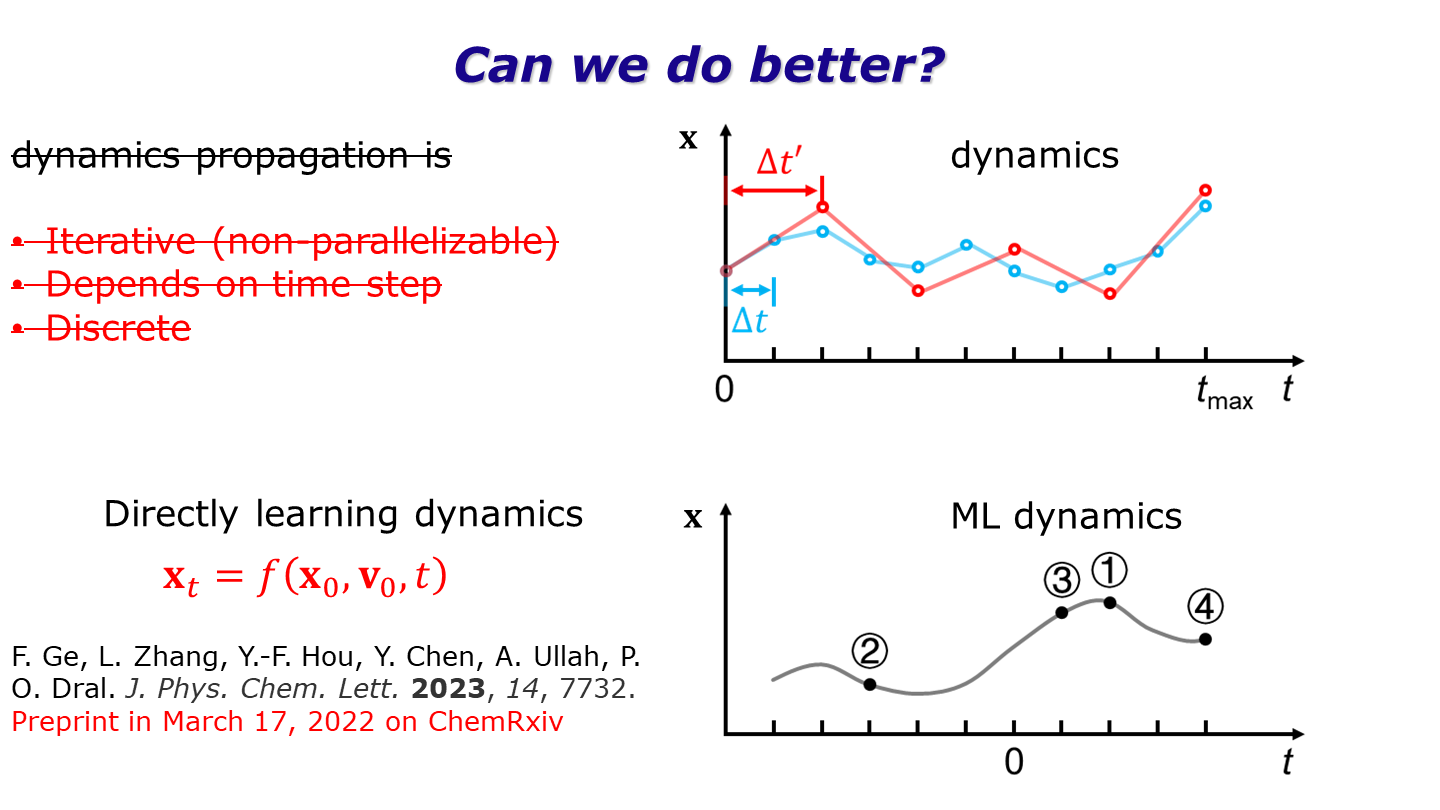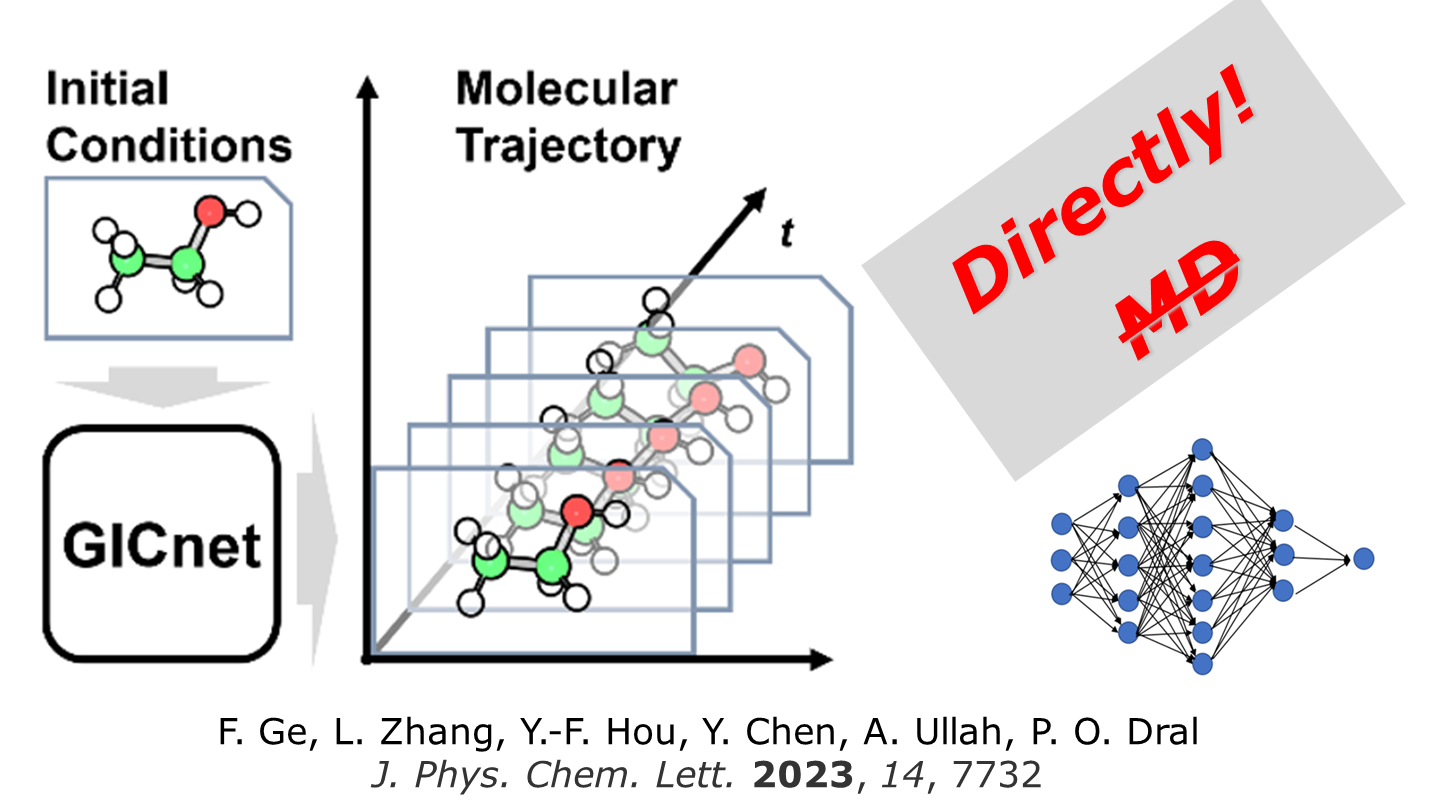Directly learning molecular dynamics!
Published Time: 2024-07-17 21:20:54
Molecules
are always in motion.

We can
accelerate this procedure with machine learning potentials to calculate forces
faster.
That’s why in March 2022, we introduced a novel concept of directly learning dynamics! The idea is very simple but not easy to realize: we predict the nuclear coordinates as a continuous function of time! We can parallelize predictions at different time steps as they do not need to be calculated sequentially. The trajectories also can be obtained with arbitrarily high resolution.

We managed to pull off a difficult task of creating a deep learning model to learn dynamics and predict the trajectories fast. This model is called GICnet and was published in JPCL in 2023. In effect, GICnet models are analytical representation of molecules and chemical reactions in four-dimensional spacetime!

Amazingly,
our model can learn dynamics of different molecules and even learns cis-trans
isomerization dynamics of azobenzene. The trajectories can be obtained with
GICnet orders of magnitude faster than with machine learning potentials.
If you want to learn more about AI-enhanced computational chemistry, you can check out our new hands-on online mini-course, perfectly suitable for both beginners and experts wanting to upgrade their computational tools.